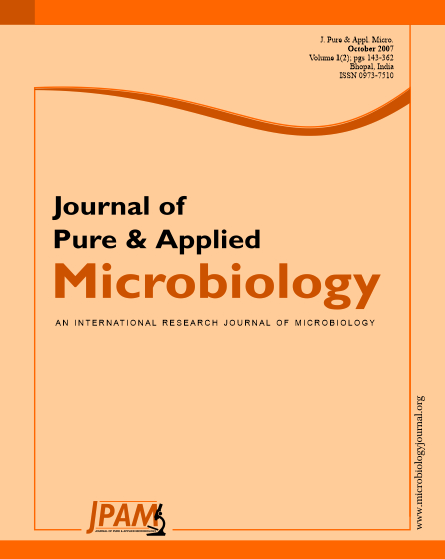Oil from cottonseeds (Gossypium hirsutum L) and its fermented product (‘owoh’) were investigated for their physicochemical and antibacterial properties using standard methods. Antibacterial property of the oils was carried out against five clinically important pathogens: Staphylococcus aureus, Pseudomonas aeruginosa, Escherichia coli, Klebsiella sp, and Salmonella sp. The iodine value (81.49) and specific gravity (0.8276) of oil from ‘owoh’ was lower than the substrate (109.11) and (0.8621) in that order. Saponification value increases after fermentation (from 209.00 to 196.00 mgKOH/g). This indicates that the molecular weight decreases after fermentation. Fermentation affects the keeping quality of the samples. Refractive index of oil from ‘owoh’ (0.8276) was slightly lower than the unfermented sample (0.8621). The antibacterial property of the oil was not significantly affected by fermentation. Pseudomanas aeruginosa was resistant to the oils even at higher concentration. The two investigated samples were effective against both Gram-positive and Gram-negative pathogenic bacteria. The results show that fermentation does not affect the edibility of cottonseed oil and the oils can be used against enteric pathogens especially Salmonella typhii and E. coli.
Cottonseed oil, antibacterial, fermentation, pathogens, physicochemical properties
© The Author(s) 2007. Open Access. This article is distributed under the terms of the Creative Commons Attribution 4.0 International License which permits unrestricted use, sharing, distribution, and reproduction in any medium, provided you give appropriate credit to the original author(s) and the source, provide a link to the Creative Commons license, and indicate if changes were made.


